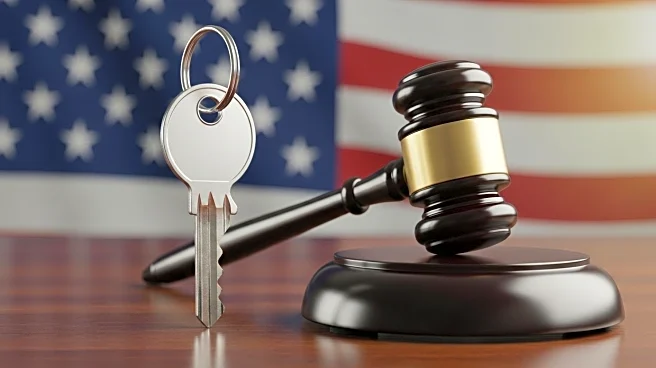What is the story about?
What's Happening?
Washington, D.C. Mayor Muriel Bowser has ordered the continuation of coordination with federal law enforcement, even as President Trump's temporary control over the city's police force is set to expire. This decision follows a public safety emergency declared by Trump, which allowed him to take control of the D.C. police under the District of Columbia Home Rule Act. The emergency was declared to address violent crime, despite data indicating a decrease in such crimes. Over 1,000 arrests have been made since the federal takeover, with the administration claiming further crime reductions. Bowser's order, effective immediately and without an end date, aims to maintain federal cooperation beyond the expiration of Trump's authority on September 10.
Why It's Important?
The decision by Mayor Bowser to continue federal coordination highlights the complex dynamics between local and federal authorities in managing public safety. While the Trump administration touts the federal intervention as a success in reducing crime, critics argue that it may not offer a sustainable solution. The ongoing federal presence could influence future policy decisions regarding crime management in urban areas. Additionally, Bowser's stance contrasts with other local leaders who oppose federal intervention, reflecting broader tensions over presidential powers and local autonomy.
What's Next?
As Trump's authority over D.C.'s police force ends, the continuation of federal coordination could set a precedent for future federal-local law enforcement collaborations. The situation in Chicago, where Trump plans to deploy federal troops despite local opposition, may further escalate tensions. The outcome of these interventions could impact public perception and policy regarding federal involvement in local law enforcement.
















